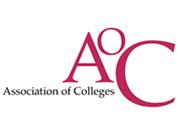Ruminating on Different Views and Perspectives on the Last Day of the AoC Conference

The final day of this year’s Association of Colleges (AoC) Conference is drawing to a close, and what remains is a slight feeling of shell shock.
It seems that, in spite of all the developments in FE this year, and in spite of the Foster Review meeting fairly universal acceptance across the board, the fairly trenchant differences of perspective remain unadulterated and undiminished. If you were to attempt to turn your head to encompass all the points of view expressed, it is quite possible that your head would fall clean from your shoulders, rolling and bouncing down the road.
Funding
Take, for instance, the issues of funding. Everyone accepts that funding is far behind that of schools, and everyone seems to agree that 13% gap has to be closed. That is about as far, however, as agreement goes. NATFHE, the University and College Lecturers” Union, say that this commitment to closing the gap is too little too late; so they, basically, say that more is needed.
Let’s assume this is the case, then. All agreed? FE needs more money. But where is it to come from? Is it to be taken from the school’s budget? The Association of Teachers and Lecturers (ATL) have said this must not happen, and the Government will undoubtedly be keen to avoid an embarrassing industrial action on the part of there more than 120,000 members.
Perhaps the Government will produce more money? It seems that this may be limited; according to Ruth Kelly, the Education Secretary, additional “catch ““ up” funds will have to come from individuals and employers, who she argues benefit from skills development post Level 3. So the funding won”t all come from Government”¦and it won”t come from another section of the budget”¦one thought that occurs is that raising fees for adult learners might lead to fewer taking up training.
Pay Up?
Then, of course, there was the nation ““ wide protest by NATFHE members over the pay deal that was agreed for 2003 / 2005 and has yet to be delivered in a majority of cases. Lecturers argue that they are receiving 10% less than their school counterparts, and NATFHE are demanding a change. All well and good so far”¦but this is the point at which things get complicated.
The Education Secretary refused to become involved in this at the Conference, stating it is a matter for individual colleges. Individual colleges seem to feel that they cannot afford pay rises above the current level without funding increases, which are not forthcoming. Everyone seems to be ignoring the inequalities within FE, with Work Based Learning Assessors” starting basic salary almost £5,000 lower than that of an average lecturer.
Even on the subject of the proposed single inspectorate, merging the Adult Learning Inspectorate (ALI) within Ofsted, there are widely varying views; some claiming it will destroy inspection quality, others claiming it will build on quality. Another example; Ofsted Chief Inspector David Bell states that 4% of FE Colleges are still failing, with any accorded “satisfactory” not being good enough, whilst Mark Haysom, Chief Executive of the Learning and Skills Council, putting the emphasis on “only 4%” failing!
It would seem that the waters are muddier than ever, and may be due a good dredge!











Responses